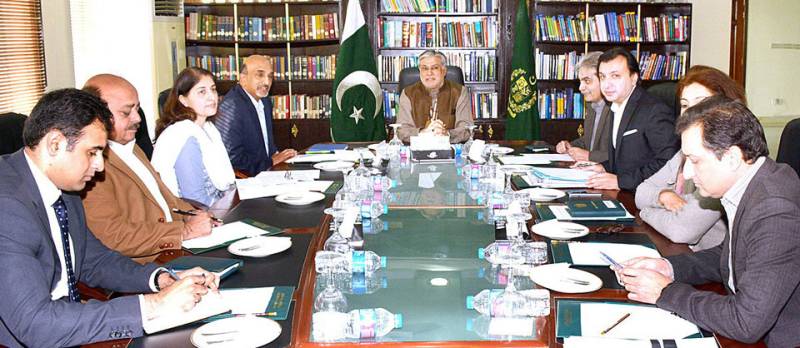ISLAMABAD - Pakistan Saturday deplored the World Bank’s decision to stay neutral in the water row between Islamabad and New Delhi, urging it to help resolve the dispute before it escalates dangerously.
Finance Minister Ishaq Dar asked World Bank President Jim Yong Kim to review the decision of “pause” on the formation of a court of arbitration to decide the water dispute between Pakistan and India, terming the move “seriously prejudiced”.
In response to a letter from the World Bank president, dated December 12, Dar expressed serious concern over the decision of halting the process of empanelment of the court of arbitration Pakistan had sought to settle the water dispute with India in the light of the Indus Waters Treaty of 1960.
Pakistan had written a letter to the World Bank president following threats by the Indian government to divert the water of Chenab and Jhelum rivers in sheer violation of the Indus Waters Treaty and sought the bank’s intervention to resolve the issue through the formation of the court of arbitration. The World Bank president in reply to the letter “paused” Pakistan’s request for the resolution of the issue.
Dar emphasised that the World Bank’s decision will seriously prejudice Pakistan’s interests and rights under the Indus Waters Treaty.
The letter to the World Bank president has been sent with the approval of all stakeholders concerned and strongly conveys that the matter of appointment of the chairman of the court of arbitration has been inordinately delayed, while urging the World Bank to execute its obligations under the Indus Waters Treaty as the “chosen appointing authority” and “appoint the Chairman of the Court of the Arbitration Indus Waters Treaty, expeditiously”.
The minister noted that the “pause” proposed by the World Bank president will merely prevent Pakistan from approaching a competent forum and having its grievances addressed.
The letter notes that the Indus Waters Treaty “does not provide for a situation wherein a party can ‘pause’ performance of its obligations under the treaty”.
Dar said the letter of December 12 from the World Bank was a departure from its earlier position conveyed in its letter of October 18 in which it was stated: “The Bank’s role is limited in character, and relates only to the exercise of procedural functions which do not touch upon the factual or legal merits of the contested issues”.
The minister emphasised that as acknowledged by the World Bank, “the bank has a well-defined role, which should remain consistent with the provisions of the treaty”.






